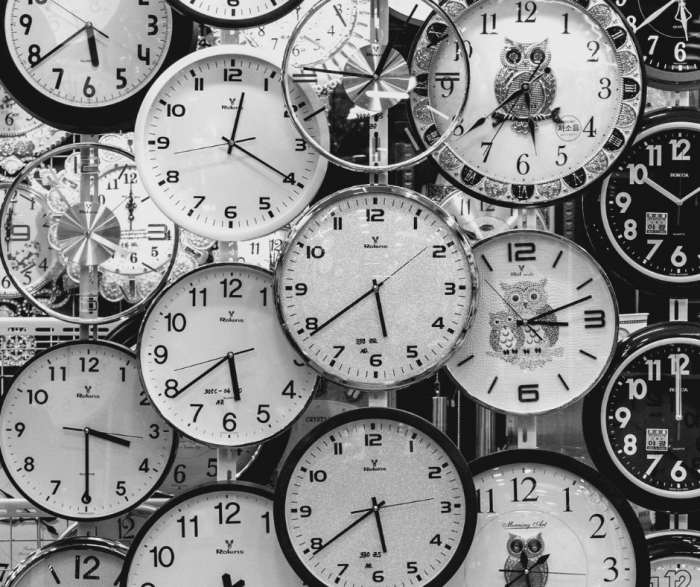“Improving Your ‘Time Sight’”
Struggling with Time Management is a hallmark characteristic of ADD and a Busy Brain. It’s a universal complaint among the individuals who come to my coaching practice for help. And, honestly, it’s one of my favorite things to work on with a client because the results of our partnership can be a really dramatic and tangible improvement for them, and watching my clients flourish is really my favorite part of my job!
Our difficulty judging time, or “Time Blindness”, is a really common part of this busy brain-related struggle, and one that is really important to address and accept if we want to improve our overall Time Management skills. And when I talk about acceptance, I don’t mean to imply that you shouldn’t try to improve your “Time Sight”, or your perception of time, because I think we should always try to improve ourselves. But, accepting that your sense of time is, at best, unreliable, is really important in learning to overcome it. Once you really accept it, you can let go of the guilt and shame, and that little voice in your head that says “I don’t need to wear a watch!” you can learn to rely on some tools that can help you keep better track of time!

Here are some simple things you can do right now to help you improve your Time Sight, so that you can take control of your days:
- Make Time Visible! First and foremost, ALWAYS wear a watch, and put clocks everywhere in your home and office. I am always amazed at how many clients come to me with complaints about time management, but don’t routinely wear a watch! So be honest with yourself—you know that you have a wonky sense of time and that you’re not always the best judge and the best at keeping track of time, so do yourself a favor, and always wear a watch!
And for those of you who are thinking, “I don’t need a watch, I just use my Cell Phone!”… I’d like you to think twice about that! If you’re in a meeting, or even a casual lunch with someone, picking up your cell phone, unlocking the screen and checking the time looks rude, even if you don’t mean it to be. In certain circumstances, it looks like you are totally disinterested, and it can also lead you to getting sucked into your email, text messages, etc. and lead to you tuning out. So, we end up not doing it, and losing track of time. It’s so much less obnoxious to glance at your watch. Along the same lines, I have clocks all over my house—including in my bathroom, strategically placed above the door so that I can see it from the shower! Of course, there’s a clock on my computer screen, but I also keep an analog clock on my desk at all times as well. In fact, I’m not sure there are really any places in my house that don’t have a direct view of a clock!
- Opt for Analog. For many of us, watches and clocks with an Analog face (you know, ones with gold old-fashioned hands that tell the time rather than a digital face) can be much easier to read and will enable you to much more easily see the passage of time. Believe it or not, this can make a BIG difference!
- Keep it Real. And, whatever kind of watch or clocks you use, do yourself a favor and set them to the actual time! So many of us play the game where we set our clocks a few minutes ahead to try to keep us on time, but what it really does is just makes us do the math, and it lulls us into a false sense that we’re more punctual than we really are. You know you’re smarter than that. You can’t trick yourself into being on time. You just have to do the work!
- Timers & Alarms. And timers & alarms are a couple really handy, and inexpensive, tools for helping improve our concept of time. Timers are very helpful tools for improving time management and your perception of times. I like to use a variety of timers so that I am less likely to become immune to the sounds they make.Timers can actually also improve your “time blindness.” I recommend you use a timer to time tasks you do frequently. Task-timing exercises can also help if you’re frequently tardy because you try to squeeze in “one more thing.” Knowing exactly how much time that “one more thing” really takes enables you to make a thoughtful decision in the moment, and improve your punctuality greatly. It can be very eye-opening and help you improve your perception of time as well.Task-timing exercises can also improve your ability to estimate the passage of time, and I often recommend parents of kids with ADHD—and adults with ADD as well– to playtime estimation games to improve their sense of the flow of time. Estimating the time it will take to do something or get somewhere, and then checking your guess against reality, both improves awareness, and also improves your ability to judge time conceptually.
- Play Time Games!And along the same lines, I usually try to guess what time it is before I look at the clock (and I play the “Guess-What-Time-It-Is” game with my kids). I think this has helped me judge the passage of time a little better as well. Or it could just be that I have so many clocks around me that I rarely go very long without looking at one anymore!
So, practice improving your “Time Sight” as a good first step toward improving your overall time management skills.
Next week, I’ll explore one of the most important aspects of good time management: using a calendar effectively.
Until then, Happy Timing!


Lynne Edris, ACG
Productivity & ADHD Coach




